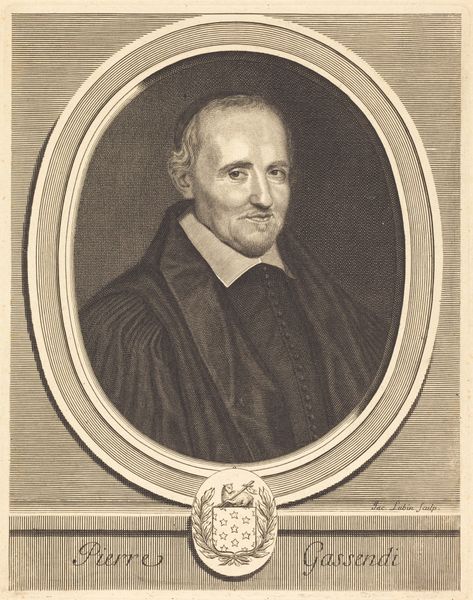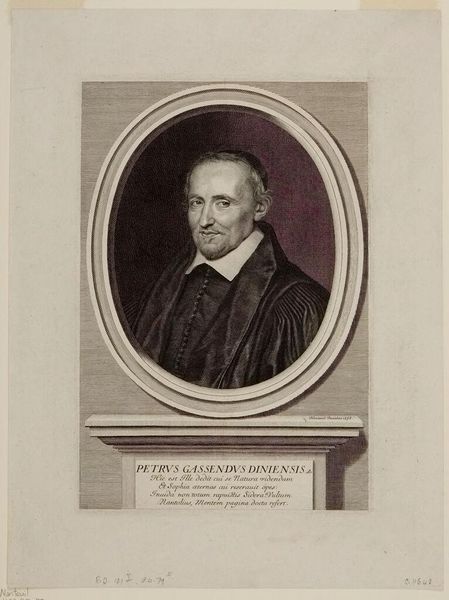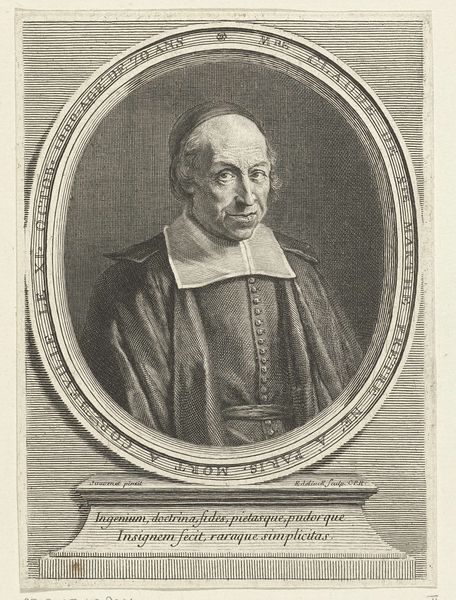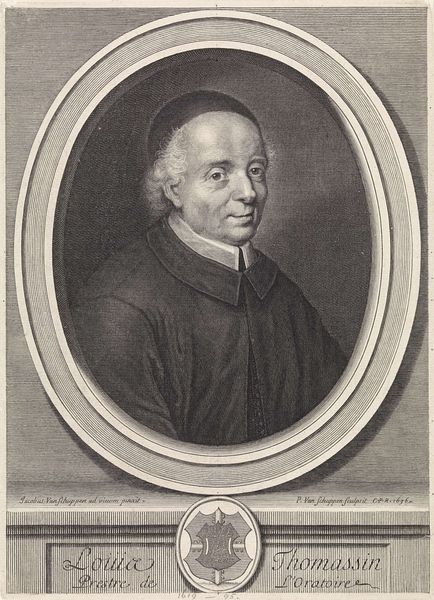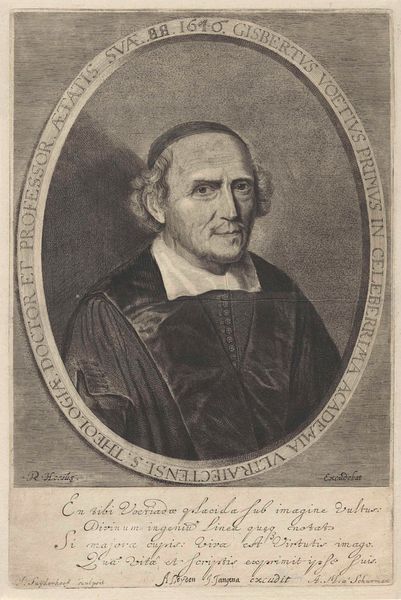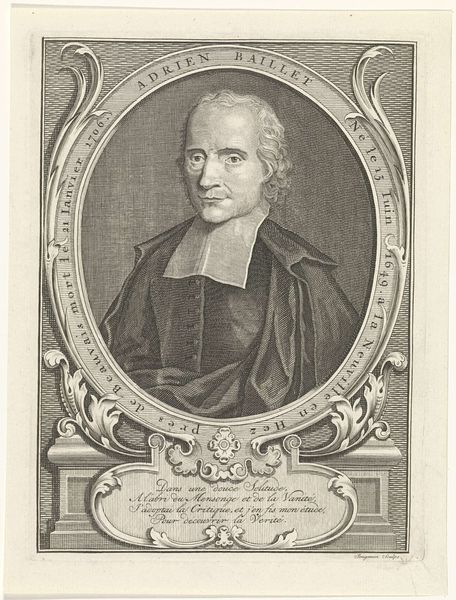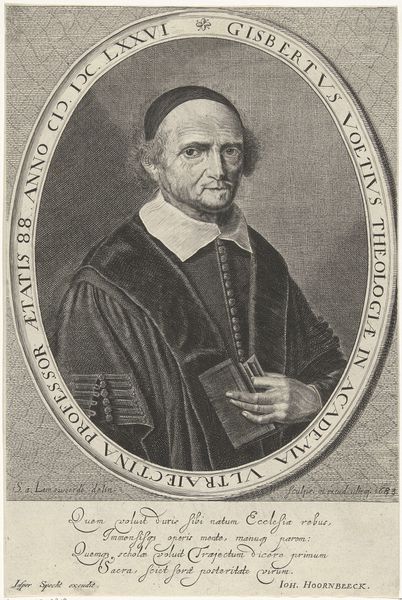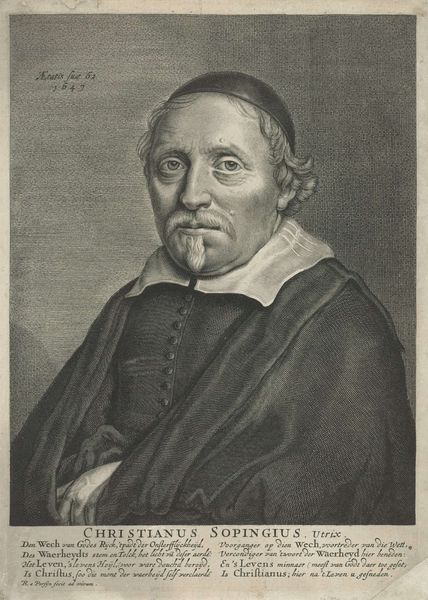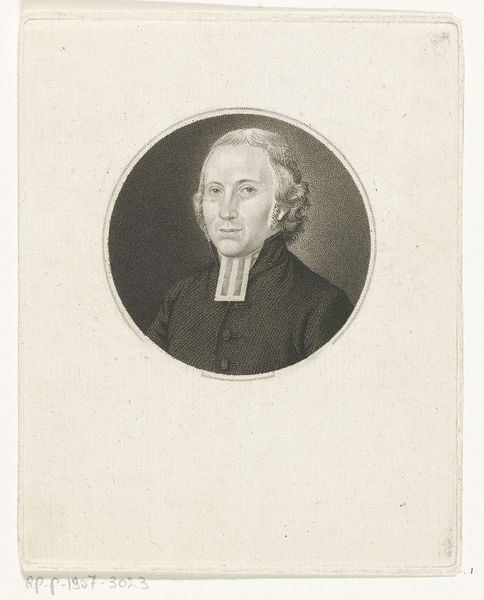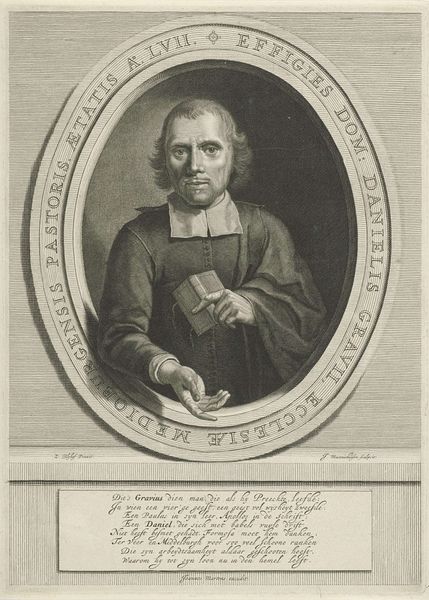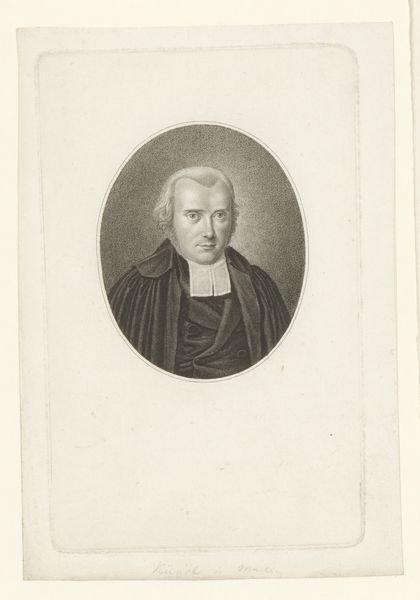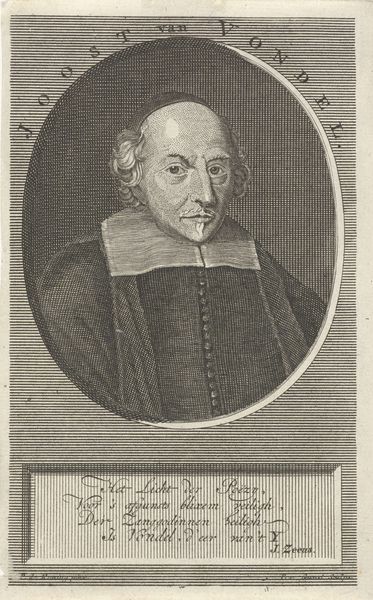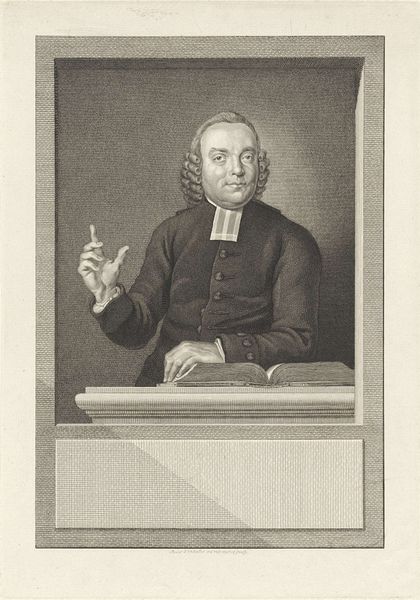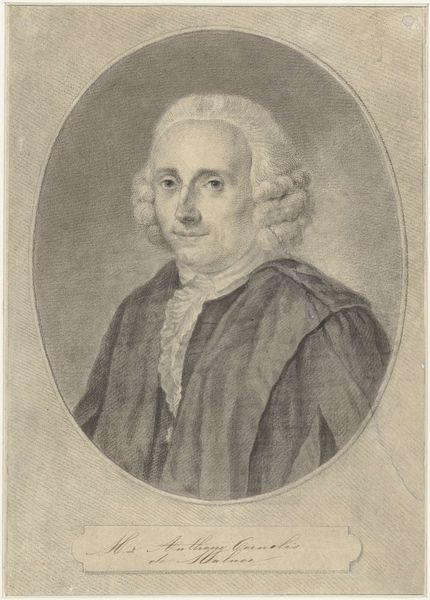
drawing, print, engraving
#
portrait
#
drawing
#
baroque
# print
#
historical photography
#
engraving
Dimensions: height 288 mm, width 195 mm
Copyright: Rijks Museum: Open Domain
Editor: So, this is Robert Nanteuil's "Portrait of Pierre Gassendi" from 1658, an engraving. It's interesting how Nanteuil captured Gassendi; he looks thoughtful and wise. What stands out to you in this portrait? Curator: What immediately strikes me is the interplay between individual genius and institutional validation so prominent in the Baroque era. Consider Gassendi, a philosopher and scientist; Nanteuil, a celebrated engraver; and the patronage system that enabled such works. Editor: How does the patronage system connect with the artwork itself? Curator: This wasn't merely a likeness, it was a statement. Portrait engravings like this one helped to solidify reputations and disseminate knowledge within intellectual circles. Gassendi’s ideas were being visually endorsed, becoming a part of a larger cultural conversation about science, religion, and the emerging public sphere. Think about where it would have been displayed – libraries, scholarly collections – shaping public perception. Editor: I hadn’t considered the dissemination of ideas that way. Did the image carry a particular weight because it was a print? Curator: Exactly. Prints had the power to circulate more widely than paintings, impacting the reach and authority of the depicted figure. Nanteuil wasn’t just making an image; he was participating in the construction of Gassendi’s intellectual legacy within 17th-century society. How do you think that tension plays out today with digital image circulation? Editor: That makes me see the artwork as more than just a portrait. It's a historical artifact that embodies cultural and intellectual exchange. Curator: Precisely! It shows how artistic representations contributed to constructing reputations and shaping cultural discourse. We learn more about 17th-century society by analyzing it through those lenses.
Comments
No comments
Be the first to comment and join the conversation on the ultimate creative platform.
